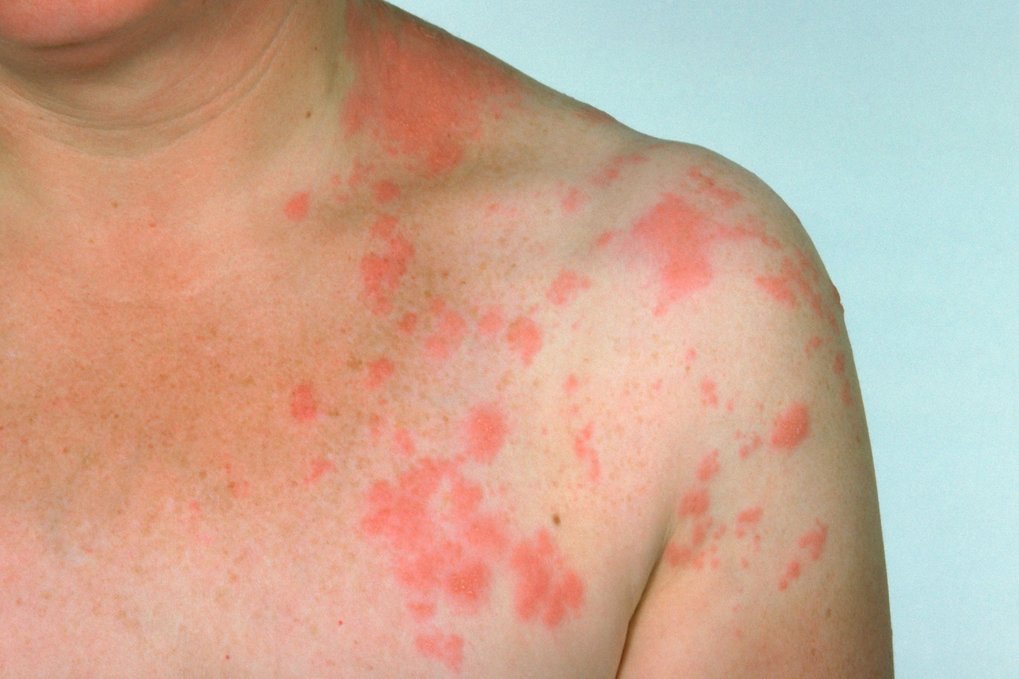Infected Insect Bite
Insect bites or stings are not usually serious and can get better in a few days. However sometimes they can become infected or cause an allergic reaction. Insects that bite or sting in the UK include bedbugs, fleas, midges, mosquitoes, bees, wasps and hornets. Arachnids (8 legged) spiders, mites and ticks can also bite. Bites from certain insects can cause specific illnesses, such as Lyme disease from ticks and malaria from mosquitoes in certain parts of the world.
What are the symptoms of infected insect bites?
Infected insect bites can cause a range of symptoms that typically worsen over time. It’s important to recognise these signs and speak to your local pharmacist as soon as you can. Symptoms of infected insect bites include:
- Increased redness: The area around the insect bite may become increasingly red.
- Swelling: Infection can lead to significant swelling around the bite.
- Heat: The skin around the bite may feel warm or hot to touch
- Pain: Infected insect bites are often more painful than non infected one. You may feel throbbing or constant pain.
- Pus or discharge: A sign of infection is the presence of pus or other discharge from the bite.
- Itching: The infection site can become very itchy.
- Increased tenderness: The bite area may become more tender or sensitive when touched.
- Fever and malaise: If the infection spreads, you may develop a high temperature or feel unwell.
The most common causes of infected insect bites are:
Infected insect bites occur when bacteria or other pathogens enter the body through the bite wound. Reasons for the bite to become infected include:
- Bacterial ingress: The puncture wound of a bite or sting allows bacteria to enter and multiply, leading to an infection.
- Scratching: Itching is a common reaction to insect bites. Scratching can damage the skin’s protective layer and open space for bacteria from under the fingernails to penetrate the wound.
- Infected insect vectors: Some insects/arachnids such as ticks and fleas can carry bacteria and other pathogens that can be transmitted into the bloodstream when they bite. Lyme disease is caused by a species of bacteria called Borrelia. It is transmitted through the bite of an infected tick.
- Not scratching the bite or sting
- Putting an ice pack wrapped in a cloth or a clean cloth soaked in cold water on the bite or sting for at least 20 minutes to reduce swelling
- Keeping the area raised if possible
- Taking painkillers such as paracetamol or ibuprofen if the sting is painful
- Using antihistamines to relieve any itching (but do not use antihistamine cream if you had caterpillar hairs on your skin)
- Using a mild steroid cream to reduce itching and swelling

